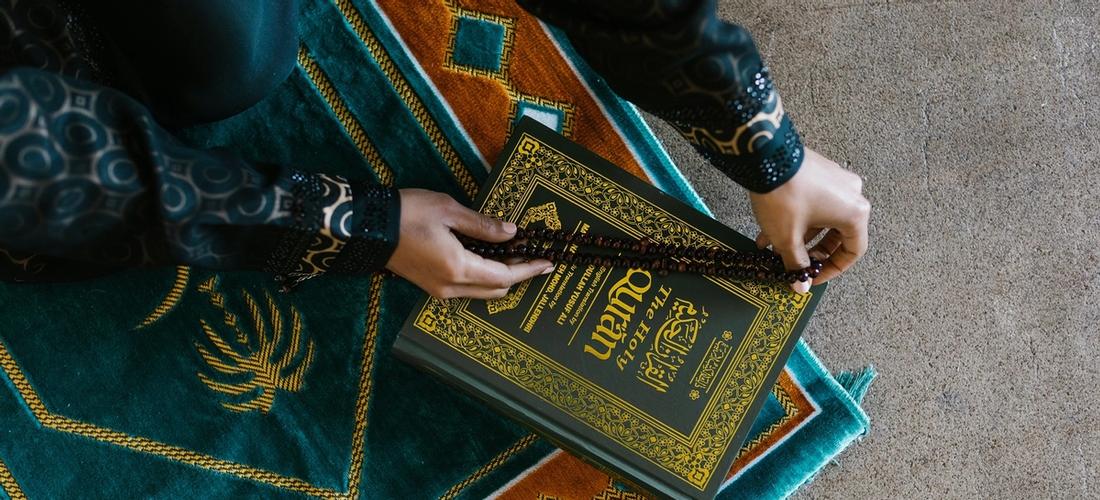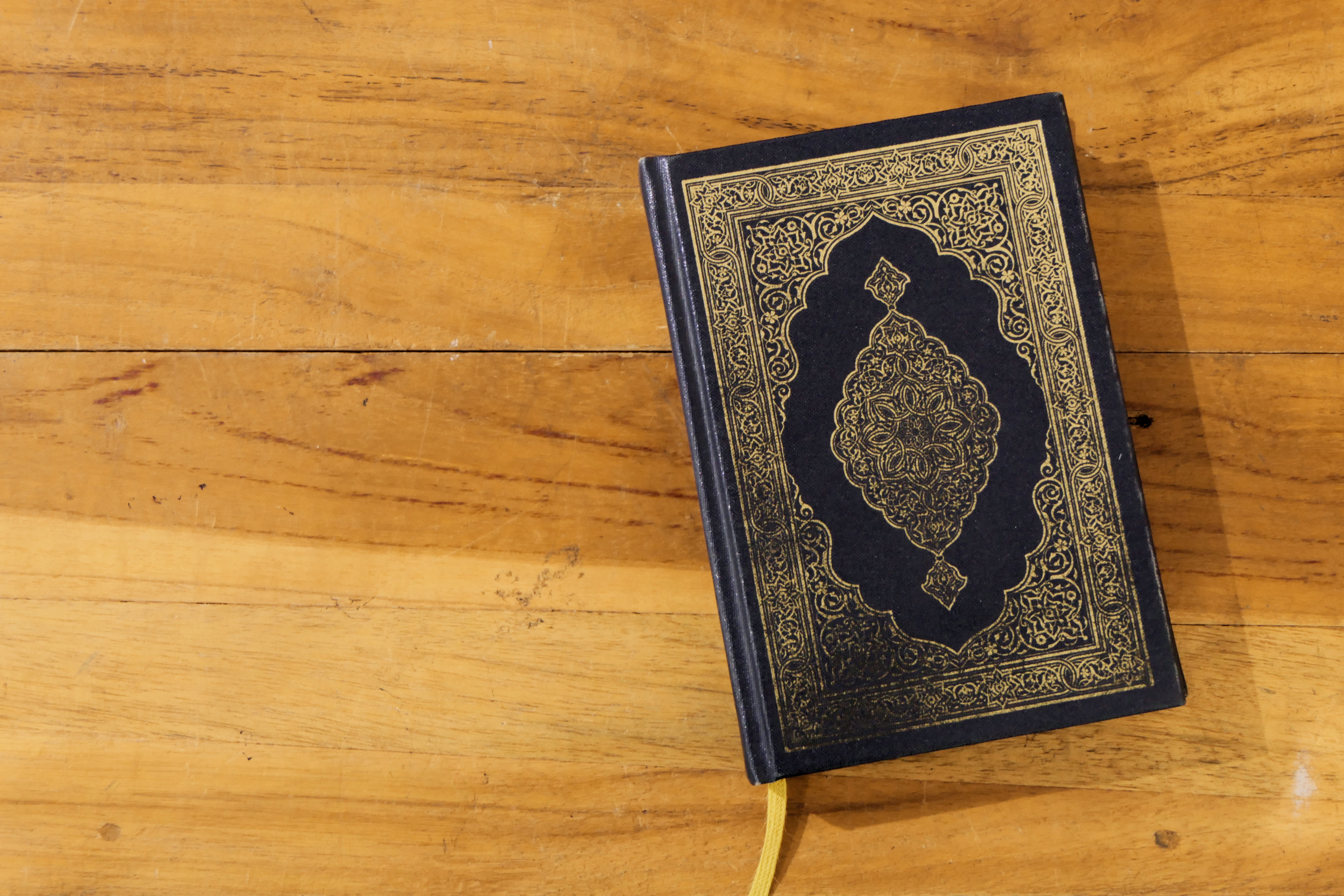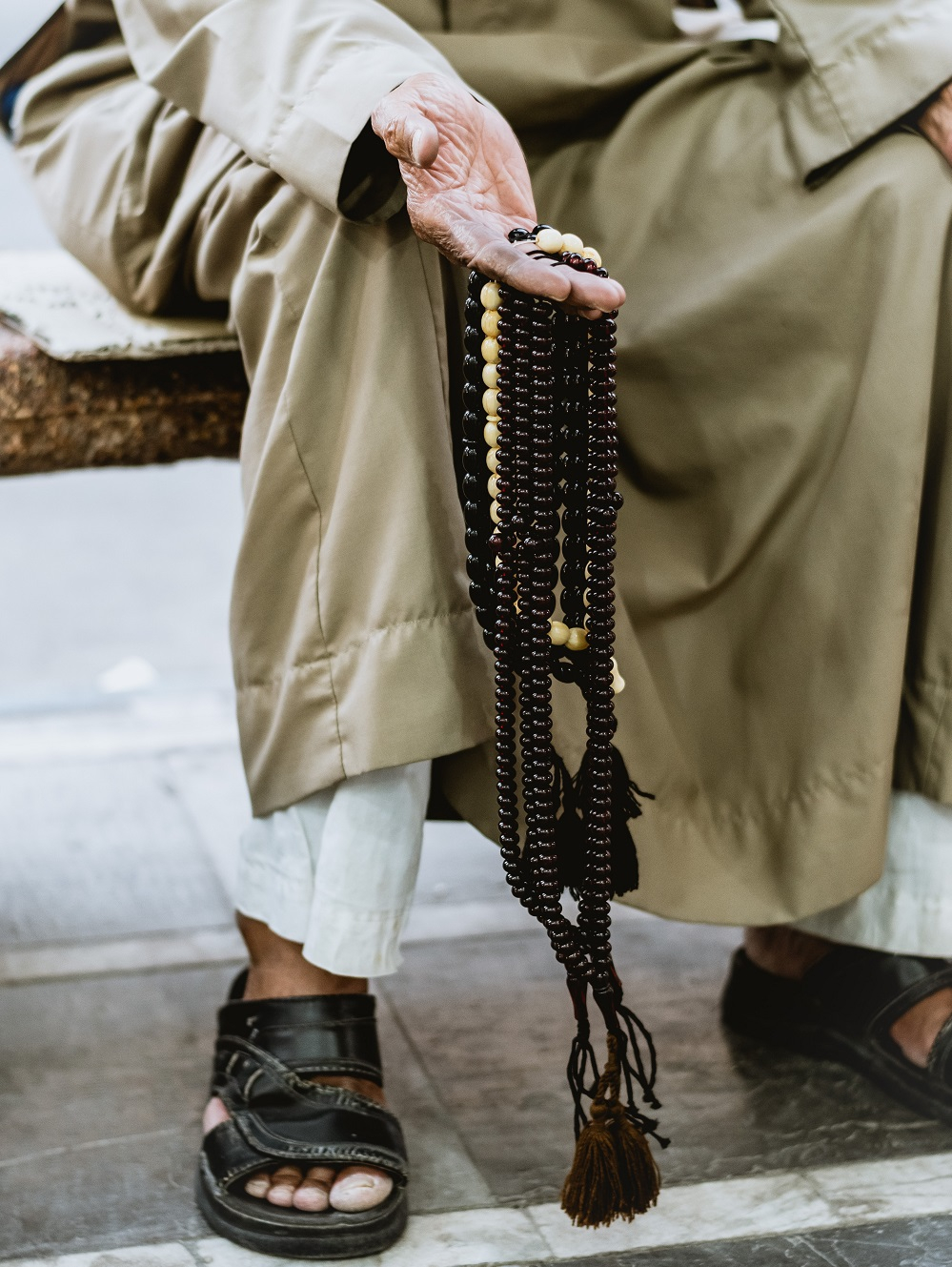10 Ways to Focus Your Ramadan Worship When You Are Unable to Fast
Faith
|
Mar 31, 2021
|
7 MIN READ

Image source: RODNAE Productions from Pexels
Not fasting this Ramadan? Yeah, been there, done that. I had to put fasting on hold whenever I was sick, pregnant or nursing. Giving birth to six kids resulted in me missing (and having to make up) a lot of months. I was not happy about any of it.
A lot of Muslims mourn the inability to fast. So many things can prevent one from fasting: pregnancy, illness, chronic illness, disability, mental health issues, eating disorders, advanced age and on and on. For many, fasting represents an intimate form of worship, one that Allah (S) singles out as being for Him. The Prophet Muhammad (saw) said:
Allah said, ‘Every deed of the son of Adam is for him except fasting; it is for Me and I shall reward for it.’ [Sahih Muslim 1946]
Therefore, it is understandable that some may feel disappointed when they must put aside any intention to fast, and their co-adherents should respect any sense of loss. Some Muslims (who cannot fast) may feel alienated from the holy month of Ramadan because of the huge physical emphasis on and aspect of fasting – avoiding food, drink and intimate relationships from before sunrise until sunset. While fasting is at the crux of Ramadan, it would benefit us to expand our conceptualizations of the month to include all that it has to offer for believers, whether or not they can fast.
Allah (S) says that the primary purpose for fasting is so that we may develop taqwa, or an awareness of the Creator and actively seek to avoid his displeasure.
O you who have believed, decreed upon you is fasting as it was decreed upon those before you that you may become righteous. (Quran 2:183)

Image source: Unsplash
When asked, the companion Abu Huraira described it as keeping away from thorns on a path.
Abu Salih reported:
“A man said to Abu Huraira, may Allah be pleased with him, ‘What is God-fearing mindfulness?’ Abu Huraira said, ‘Have you ever taken a thorny path?’ The man said yes. Abu Huraira said, ‘What did you do?’ The man said, ‘If I saw thorns, I would avoid them, pass over them, or stop short of them.’ Abu Huraira said, ‘That is God-fearing mindfulness.’”
al-Zuhd al-Kabīr 963
However, fasting is but one way to develop taqwa. Allah (S), in His infinite mercy, has given us a lot of ways to improve our relationships with Him. While fasting is at the foundation of Ramadan, we have a range of activities to engage in and become closer to Allah (S). So, those of us who can not fast do not miss out!
So You Can’t Fast Checklist
1. Get closer to the Quran.
Ramadan is the month of the Quran. The more you can engage with the holy book, the better.
“The month of Ramadan [is that] in which was revealed the Quran, a guidance for the people and clear proofs of guidance and criterion.” (Quran 2:184)
Many people center their connections to the Quran all Ramadan long, reciting the entire book in 29-30 days. It is also a great time of the year to dive into deeper readings, including in one’s native language (if Arabic isn’t their native language) and with tafseers explaining and giving layered meaning to the verses of the Quran. Watching a Quran series on YouTube. The YaQeen Institute usually offers one every year, but there are a lot of others on the platform.
In addition to the blessings of recitation, critical reading of Allah’s (S) word can provide essential reminders of His greatness and our purpose as His) worshippers. Don’t worry if you cannot read the Quran quickly enough or have the dedicated time to complete a full reading in the month of Ramadan. (A caveat: Ramadan is the time to push yourself.)

Image source: Unsplash
Read a little each day, as much as possible. Aim for consistency. As mentioned above, read in your native language if Arabic is a struggle. Or, take this month as a time to work on learning to read the Quran in Arabic. Listen to the Quran on audio while reading. All these efforts will be rewarded, Insha’Allah.
2. Focus on khushoo.
In addition to increased Quran recitation, salah (our ritual prayer) and other forms of ibadah (worship) remain central during Ramadan. People eat less and pray more. Why not spend the month working on making prayers complete by improving the ability to concentrate the mind and heart to the remembrance and worship of Allah (S)?
Khushoo (focus on Allah (S) is especially important in salah, but do not limit developing it during prayer. Take the opportunity in the month to make it better. There are plenty of resources providing tips to improve khushoo, including:
- Khushoo: Strenghtening the Divine Connection by Yaser Birjas
- Tips to Increase Khushoo in Salah by Shaykh Hasan Ali
- 33 Ways of Developing al-Khushoo by Muhammad Salih al-Munajjid
- This article breaks it down in simple terms!
3. Beef up those good deeds!
The Prophet Muhammad (saw) was the most generous during Ramadan. The month is full of ways for Muslims to garner good deeds through each other. Feeding fasting people is one of the more well-known good deeds to gain blessing during Ramadan, but so much more is possible during the time of mercy and grace.
Make a Ramadan plan and organize or take part in charitable endeavors. One of the beautiful things about our deen is that charity can be something as simple as a smile. Whether you donate to your local food kitchen, give sadaqa, deliver iftar to a friend or neighbor or any act of charity – it all is amplified in generous rewards by Allah (S). Contact the mosque in your area to see what charity projects they are engaging in, in which you can participate. Think of ways to pay it forward this Ramadan.
4. Dhikr, Dhikr, Dhikr!

Image source: Pexel
Keep that tongue wet remembering Allah (S). Dhikr (a devotional act when phrases or prayers are repeated) is a powerful tool to increase the aforementioned taqwa and khushoo. Integrate dhikr in the days and nights of Ramadan, including:
- Praising Allah – Click here for duas to praise Allah (S)
- Dhikr after prayer – Click here for dhikr after prayer.
- Seeking forgiveness – Click here for duas for forgiveness.
5. Reflect upon and learn the 99 Names of Allah (S).
Allah (S) has the best names (Al-Asmâ’, Al-Husnâ ...). We often default use Allah (S), but there is great benefit in learning and calling Al-Khaliq (The Creator) by His other names.
Say, “Call upon Allah or call upon the Most Merciful (Al-Rahman). Whichever (name) you call – to Him belong the best names [Quran 17:110]
Set a Ramadan goal to learn 99 names or just more of Allah’s (S) names. Anyone learning four names a day will reach 99 by day 25 of the month.
Already know His 99 names? Then do a refresher or learn more. Although most books limit organized names to 99, there are more. Get to know your Lord better through his names and attributes.
6. Eat just enough.
An inability to fast is not an invitation to gluttony. Like those refraining from food and drink, control what you consume. Talk with your healthcare professional and devise a nutritional plan that will optimize what you eat while maintaining self-discipline. (Unless you suffer from an eating disorder, in which case focus on the other options in this list.)
7. Center and give importance to your own ibadah.
Too often, people diminish the right for those unable to fast to fully engage in the month, centering their own ibadah. Many fasters may assume that eating during daylight hours means that non-fasters should yield their time to serve those waiting for iftar, as in cook or do other things to make the fasting person’s day easier. Not true. While this surely also is considered a good deed, it is not a right upon you..
Despite social pressures, resist any presumptions about your time, and spend as much of the day as possible centering your ibadah.
8. Create a good habit.

Image source: Unsplash
It takes 21 days of consistently doing something to make it a habit. So, Ramadan is a wonderful month to create a good habit that one can maintain all year. Consider increasing worship or introducing a sunnah into your daily life.
Decide on one or two things to do every day during the weeks, but don’t overwhelm yourself. Maybe start adding sunnah to your fard (obligatory) salah. Maybe you can read a short amount of the Quran daily. The Prophet Muhammad (saw) advised that it is better to do a few good deeds regularly.
9. Practice self-care.
People must forgo fasting during Ramadan (or at all) for many reasons. Some are temporary, others permanent. If a chronic illness is a cause for you not fasting, remember to appreciate that your body needs love and care. Do not force worship to the point where you become sick or injured. Allah (S) says that he wants ease and not hardship for us in the Quran. So, avail of His mercy and give your body the rest and care it requires for the best quality of life possible.
Take a break from everything when necessary. Modulate yourself. A strong body allows for powerful worship.
10. Read a self-help book.
Muslim culture has a rich literary culture that includes books written by scholars and experts to help us improve our faith and lives. Curl up with a book that offers the chance to build a better spiritual and emotional you, improve intimacy with your partner or achieve financial goals. Everything is linked in the deen and influences our relationship with Allah (S). Strive for excellence in all of it, and use Ramadan to reconnect the spiritual and temporal.
But Layla, we do those things outside of Ramadan. Yeah, well, people are supposed to fast outside of Ramadan too. The month is one of increased worship and self-reflection. It doesn’t contain acts of devotion exclusive to it. For example, Salatul Tarawih is Qiyyamul Layl every other month.
The prayer that the Prophet (saw) made – two rakah at a time – is the basis for all night prayers (Qiyyamul Layl), except Salatul Witr. When people gather after Salatul Ishaa during Ramadan they perform Qiyyamul Layl together. Outside of Ramadan, many people may also decide to perform Qiyyamul Layl independently as any time after Salatul Ishaa, including during the time of Salatul Tahujjud.
So, take the benefits of Ramadan by embracing the days and focusing on your individual development of self and taqwa. Although fasting may not be an option, there are many things worshippers can do to make Ramadan meaningful.
Subscribe to be the first to know about new product releases, styling ideas and more.
What products are you interested in?

